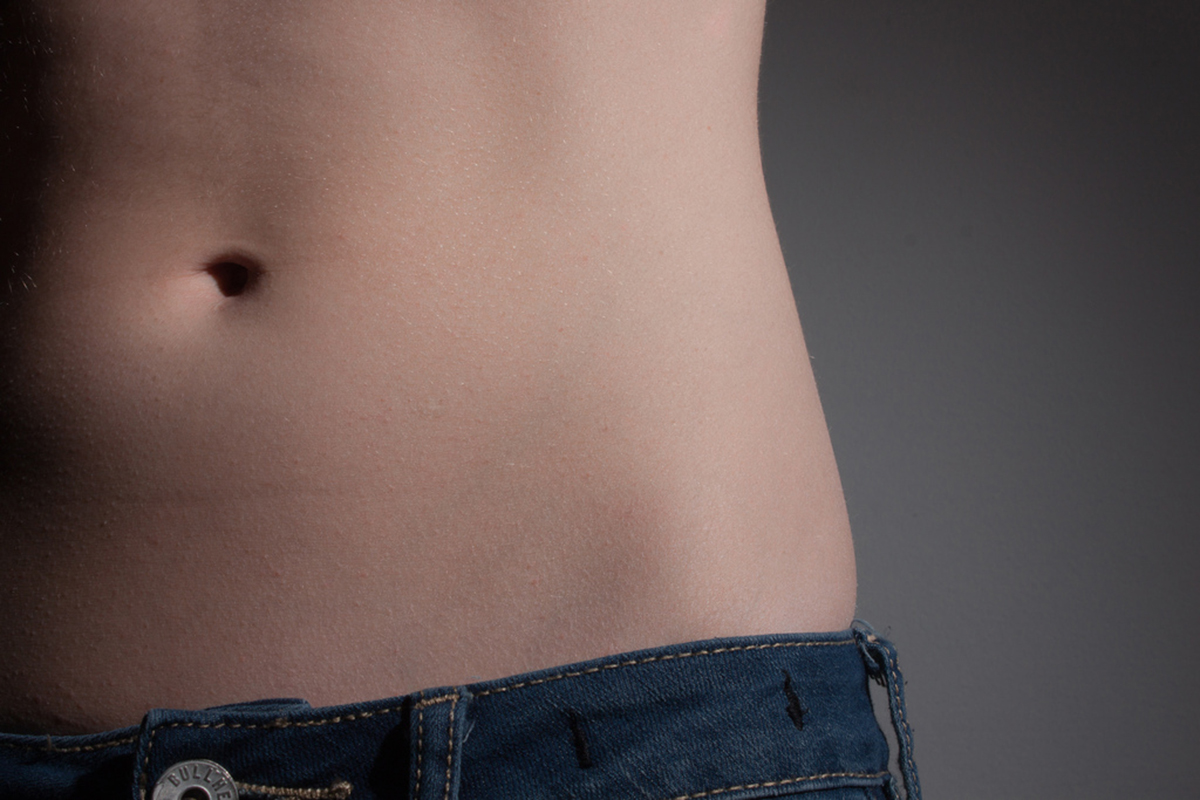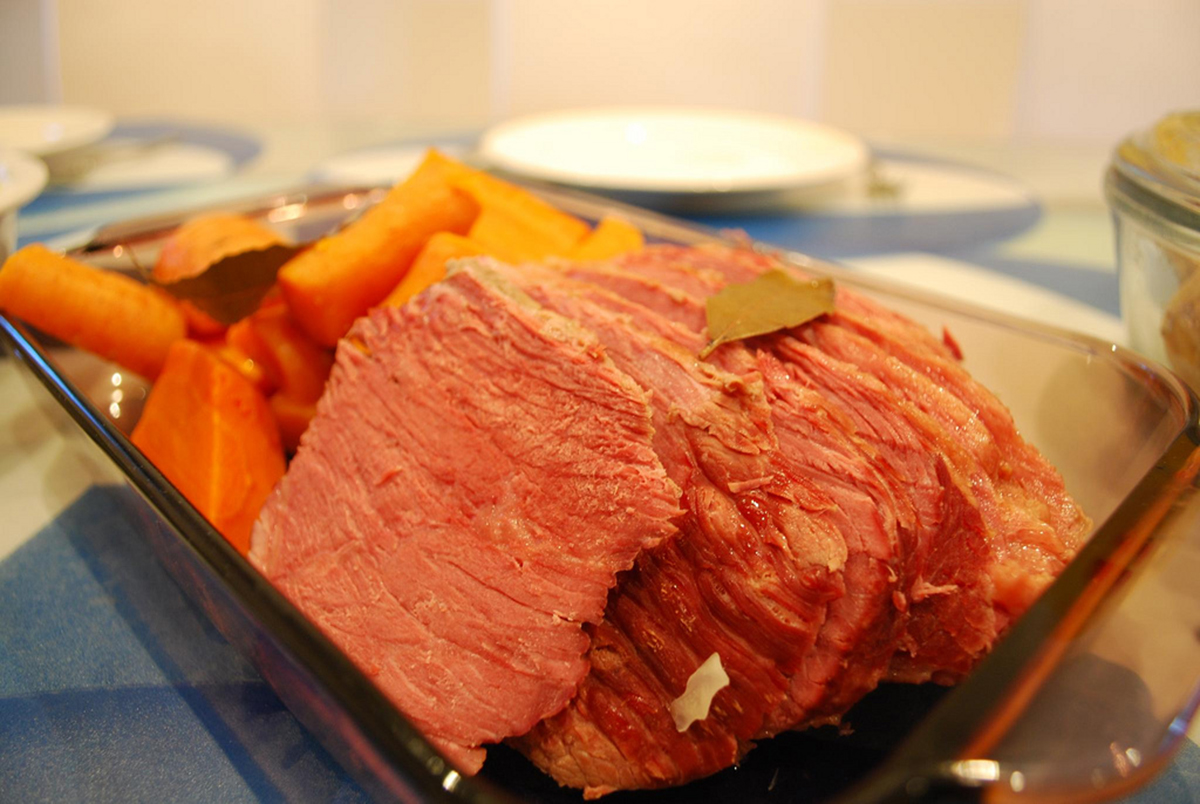Up to two million people in the US suffer from inflammatory bowel disease, and about 700,000 of these people have Crohn's disease. The disease, which was named after Burrill B. Crohn, MD, who described it in 1932, is one of two conditions that make up a group of disorders classified as inflammatory bowel diseases, or IBD. The other condition is called ulcerative colitis, which mainly affects the colon.

What is Crohn's Disease?
Crohn's disease (also called Crohn disease) is a chronic inflammatory disease that affects the digestive tract. Although inflammation can occur anywhere from the mouth to the anus, most patients have ulcerations in the small intestine and large intestines.
In Crohn's disease, there is chronic inflammation that affects the entire thickness of the bowel wall. One can have ulcers in the entire length of the intestine or have multiple ulcer clusters scattered throughout the digestive tract, with healthy tissue in between.
In severe cases, inflammation can lead to tears or fissures in the anal lining, which cause bleeding and pain during bowel movements. Fistulae or tunnels connecting the intestine to other organs such as the bladder, the vagina, or the skin may also develop. These complications require immediate medical attention.
What Causes Crohn's Disease?
The exact cause of this condition is poorly understood, but scientists believe that an abnormal immunologic response to some triggering event, in the presence of certain predisposing factors, is responsible for the disease. Many patients inherit a genetic susceptibility to the disease, and those who have first degree relatives who have the disease are more likely to develop it. Environmental, as well as lifestyle factors, which includes smoking cigarettes and use of oral contraceptives, also seem to be associated with it. Consuming a high fat diet is another predisposing factor.
What triggers an abnormal immune response leading to chronic inflammation in the digestive system has been an enigma to scientists studying IBD. Some studies show that the intestines of individuals with Crohn's disease have higher levels of a certain types of bacteria, such as E. coli, Pseudomonas species, Mycobacterium paratuberculosis, Listeria species,Enterobacteriaceae, Veillonellaceae, Pasteurellacaea, and Fusobacteriaceae.
Can You Beat Crohn's Disease?
So far, no cure has been found for Crohn's disease. Patients may experience periods of active inflammation (relapse) and inactive periods (remission). During active inflammation, they may have symptoms such as abdominal pain, vomiting, diarrhea, rectal bleeding, poor appetite, fever, rectal pain, and weight loss. Remissions may occur without treatment; however, some medical, surgical, and natural treatments may help induce and prolong remissions and improve quality of life.
Surgical treatment of Crohn's disease involves removal of an affected segment of the intestine that causes obstruction, drainage of abscesses, and treatment of fistulae or tunnels. These procedures can prolong remission and significantly improve the quality of one's life but the disease often returns after a few years in half of the patients.
Diet modification and nutritional therapy are an important part of beating Crohn's disease, and these are what patients can do for themselves on a daily basis. Eating certain foods can worsen one's symptoms, but choosing the right types of food and supplementing the diet can help restore one's health and reduce relapses.
See Also: Crohn's disease- chronic inflammation of the digestive tract
Eating a healthy diet is sometimes a challenge because certain foods can trigger an attack of symptoms. This results in poor appetite, malnutrition, and poor health.
There is no evidence that specific foods are the cause of bowel inflammation, and reactions of individuals to these foods may vary. But knowing what foods are safe and which ones are likely to trigger relapses can help make life easier.
Is There A Crohn's Disease Diet Plan?
People who have Crohn's disease usually have difficulty absorbing nutrients because of repeated bouts of diarrhea. Their symptoms also lead them to lose appetite, which results in weight loss. Although many advertisers promote various diets over the internet to help patients with Crohn's disease, in reality, there is no specific diet that can cure or treat every patient with the disease. But one needs to learn more about his nutritional needs and what foods he can tolerate.

Personalize Your Diet Plan
-
To maintain a healthy weight, try to eat three regular meals and two snacks a day.
-
It is important to consume a high protein diet with sufficient calories. Red meat such as lean beef (sirloin, hamburger), poultry, and fish are good examples of protein-rich foods.You can also take high-calorie protein shakes or supplements, such as Boost Plus and Ensure Plus.
- Bland foods such as pasta are preferable to spicy foods, which can irritate the intestines. Avoid alcohol, carbonated beverages, coffee, chocolate and tea.
- Avoid eating high fiber foods, such as such as cabbage, broccoli, nuts, legumes, etc, which can cause abdominal pain, gas, and diarrhea. But instead of avoiding fruits and vegetables completely, try cooking them without their skins, hulls, or seeds. Prepare them in various ways such as stewing, baking or steaming. Fresh fruits and vegetables must be peeled and seeded, or consume canned varieties.
-
You will probably have difficulty absorbing many nutrients, such as B vitamins, folic acid and iron. It may be necessary for you to take vitamins and minerals to supplement your diet and to correct any nutritional deficiency.
-
If you have oily stools, avoid eating fatty foods. Bake or broil foods instead of frying them. Avoid milk and dairy products that are high in lactose and opt for lactose-free milk, yogurt or cheddar cheese.
-
Avoid dehydration, kidney stones or gallstones by drinking plenty of fluids.
-
It is not easy to identify which foods can trigger symptoms, since people have different reactions to various foods. Experts recommend keeping a food diary which lists down daily food consumption and symptoms experienced. It is best to write in detail the time, amount and type of food you eat daily, and the symptoms you experience, if any. From this, you can develop your own diet plan. Keep in mind that some foods may cause problems during a flare-up but at other times, eating these foods may not bother you.
-
Consult your doctor and dietitian about what foods you can eat to maintain calorie and nutrient balance. Find out what foods can replace the ones that cause symptoms, considering the energy and nutritional values your body needs.
See Also: Symptoms, Causes, Prevention and Treatment of Stomach Ulcers
Disclaimer:
This information should not be taken in place of medical advice. We encourage you to talk to your health care providers (doctors, registered dietitians, surgeons, pharmacists, etc.) about your condition and your questions about what may be best for your overall health.
- WebMD. Crohn's Disease - Topic Overview. http://www.webmd.com/ibd-crohns-disease/crohns-disease/tc/crohns-disease-topic-overview
- WebMD. Creating a Crohn's Disease Diet Plan. http://www.webmd.com/ibd-crohns-disease/crohns-disease/creating-a-crohns-disease-diet-plan
- Mayo Clinic. Crohn's Disease. http://www.mayoclinic.org/diseases-conditions/crohns-disease/basics
- WebMD. Eating Plan for Inflammatroy Bowel Disease. http://www.webmd.com/ibd-crohns-disease/eating-plan-for-inflammatory-bowel-disease#
- Medscape. Crohn Disease. http://emedicine.medscape.com/article/172940-overview#aw2aab6b2b4
- MedicineNet. Crohn's Disease. http://www.medicinenet.com/crohns_disease/article.htm
- Gevers D, Kugathasan S, Denson L, et al. The treatment-naive microbiome in new onset Crohn's Disease. Cell Host & Microbe, March 2014 DOI: 10.1016/j.chom.2014.02.005
- Photo courtesy of Beth Phillips by Flickr : www.flickr.com/photos/superr-rad/8461725045
- Photo courtesy of Alpha by Flickr : www.flickr.com/photos/avlxyz/3299357375
- www.webMD.com
- www.mayoclinic.com
- www.medscape.com
- www.medicinenet.com

